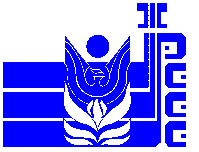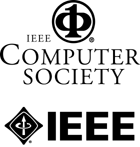
37th IEEE
|
IPCCC 2018 November 17th – November 19th, 2018, Orlando, Florida, USA
|
|
Keynote Speakers
|
Dr. Kien A. Hua Professor of Computer Science, University of Central Florida Title: Addressing the challenges of the Internet of Things in a Highly Connected World The Internet of things (IoT) with 34 billion connected devices by 2020 will generate more 'big data' than ever. While Cloud Computing has been a viable solution for processing and analyzing very large volumes of data, dealing with billions of live data sources continuously feeding from all "corners" of the Internet would make it a serious bottleneck for IoT analytics in the cloud. In particular, on-demand video streaming already takes up 70% of Internet traffic. Non-stop streaming of IoT data will add substantially more stress on the Internet if IoT applications are not deployed responsibly. In this presentation, we discuss potential solutions for this emerging challenge as video streaming and IoT streaming coalesce. We re-examine conventional wisdom in network design and consider a new concept called traffic deduplication. We present a Deduplication Overlay Network (DON) that shows congestion can surprisingly be turned into advantage. Another great IoT challenge is due to 'thing' heterogeneity (i.e., the diversity of cameras and sensors) and a new computation model is needed for heterogeneous data stream processing. We discuss this capability in an IoT architecture based on a Boolean abstraction. A Boolean query-processing framework is also presented as a potential standard approach for applications to share IoT infrastructure. These features are part of ThingStore, an online ecosystem for development and deployment of IoT applications. While an IoT environment fusing human and machine intelligence opens up a host of new opportunities, the human teams may be overwhelmed trying to keep up with massive amount of real-time information. This calls for new communication and collaboration tools to enable the human teams to deal with information overload in real-time decision making. Tabletop, a virtual multimedia conferencing system, is one such environment to support teamwork in an IoT-enabled human-cyber workplace. The team members can not only share and discuss multimedia information, but also co-operate on IoT devices as they collaborate. A short video will be presented to demonstrate this Tabletop system. Dr. Kien A. Hua is a Pegasus Professor and Director of the Data Systems Lab at the University of Central Florida. He was the Associate Dean for Research of the College of Engineering and Computer Science at UCF. Prior to joining the university, he was a Lead Architect at IBM Mid-Hudson Laboratory, where he led a team of senior engineers to develop a highly parallel computer system, the precursor to the highly successful commercial parallel computer known as SP2. More recently, Prof. Hua was serving as a domain expert on spaceport technology at NASA. Prof. Hua received his B.S. in Computer Science, and M.S. and Ph.D. in Electrical Engineering, all from the University of Illinois at Urbana-Champaign, USA. His diverse expertise includes network and wireless communications, Internet of Things, machine learning, data analytics, image/video computing, medical imaging, mobile computing, sensor networks, spaceport technology, and intelligent transportation systems. He has published widely with 14 papers recognized as best/top papers at conferences and a journal. Many of his research have had significant impact. His paper on Chaining technique began the peer-to-peer data sharing and video streaming revolution. His Skyscraper Broadcasting, Patching, and Zigzag techniques have each been heavily cited in the literature, and have inspired many commercial systems in use today. Prof. Hua has served as a Conference Chair, an Associate Chair, and a Technical Program Committee Member of numerous international conferences, and on the editorial boards of several professional journals. More recently, he served as a General Co-Chair for the 2014 ACM Multimedia conference; and he is currently organizing the 2018 IEEE International Conference on Cloud Engineering (IC2E) and serving as a General Co- Chair. Prof. Hua is a Fellow of IEEE. |
Dr. Tao Li Professor of Electrical and Computer Engineering, University of Florida Title: Enabling Efficient Computer Architectural and System Support for Next-Generation Deep Learning Applications In recent years, the artificial intelligence (AI) techniques, represented by deep neural networks (DNN), have emerged as indispensable tools in many fields. Traditionally, due to its huge compute power and scalability, the cloud data center is often the best option for training and evaluating AI applications. With the increasing computing power and energy efficiency of mobile devices, there is a growing interest in performing AI applications on mobile platforms. As a result, we believe the next-generation AI applications are pervasive across all platforms, ranging from central cloud data center to edge-side wearable and mobile devices. However, we observe several gaps that challenge the pervasive AI applications. First, the large size of such newly developed AI networks poses both throughput and energy challenges to the underlying processing hardware, which hinders ubiquitous deployment for many promising AI applications. Second, the traditional statically trained AI model in cloud data center could not efficiently handle the dynamic data in the real in-situ environments, which leads to low inference accuracy. Lastly, the training of AI models still involves extensive human efforts to collect and label the large-scale dataset, which becomes impractical in big data era where raw data is largely un-labeled and uncategorized. In this talk, I will present architecture and system support which enables next generation AI applications to become high efficient and intelligent. I will first introduce Pervasive AI, a user satisfaction-aware deep learning inference framework, to provide the best user satisfaction when migrating AI-based applications from Cloud to all kinds of platforms. Next, I will describe In-situ AI, a novel-computing paradigm tailored to in-situ AI applications. Furthermore, to tackle the big data challenge and achieve real intelligent (support autonomous learning), I will introduce Unsupervised AI, an unsupervised GAN- based deep learning accelerator. Dr. Tao Li is a full professor (with preeminence professorship) in the Department of Electrical and Computer Engineering at the University of Florida. He received a Ph.D. in Computer Engineering from the University of Texas at Austin. His research interests include computer architecture, microprocessor/memory/storage system design, virtualization technologies, energy-efficient/sustainable/ dependable data center, cloud/big data computing platforms, the impacts of emerging technologies/applications on computing, and evaluation of computer systems. Dr. Tao Li received 2009 National Science Foundation Faculty Early CAREER Award, 2008, 2007, 2006 IBM Faculty Awards, 2008 Microsoft Research Safe and Scalable Multi-core Computing Award and 2006 Microsoft Research Trustworthy Computing Curriculum Award. Dr. Tao Li co- authored two papers that won the Best Paper Awards in ICCD 2016, HPCA 2011 and seven papers that were nominated for the Best Paper Awards in HPCA 2018, HPCA 2017, ICPP 2015, CGO 2014, DSN 2011, MICRO 2008 and MASCOTS 2006. Dr. Tao Li is one of the College of Engineering winners, University of Florida Doctor Dissertation Advisor/Mentoring Award for 2013-2014 and 2011-2012. Dr. Tao Li served as a CISE program director in the National Science Foundation (NSF) during 2015-2017, directing the national research agenda in computer & system architecture, including core programs for Software and Hardware Foundation (SHF), Exploiting Parallelism and Scalability (XPS), Scalable Parallelism in the Extreme (SPX), CISE Research Infrastructure (CRI), Faculty Early CAREER Development (CAREER), CISE Research Initiation Initiative (CRII), and Expeditions in Computing (EIC) programs. Dr. Tao Li is an IEEE Fellow. |
| For questions, suggestions, or problems with the IPCCC website, please email the webmaster. |  |
|
 |
||